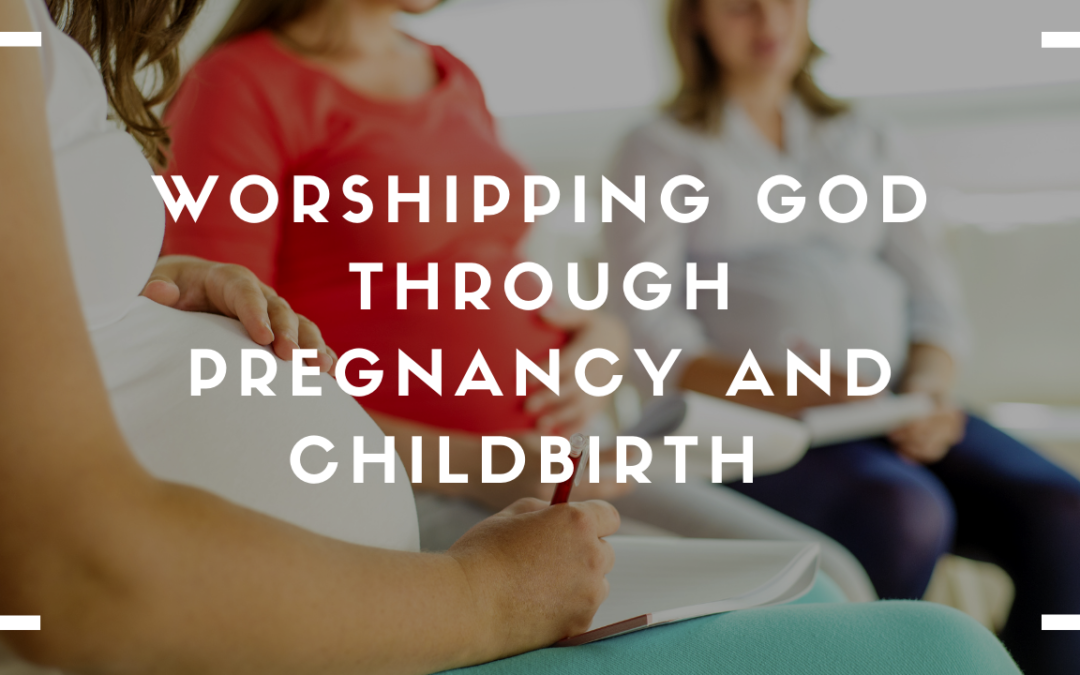Written by Ashley Blavatt
There’s no doubt that Sent Church loves babies. Whether we have our own children or not, we celebrate and nurture new babies. God has given us the gift of many children, and it is absolutely beautiful how everyone welcomes them with open arms.
But sometimes the way we talk about childbirth itself can tend toward the negative. I have two things I want us to consider. First, I want to dispel the fears or wrong theological ideas that often surround pregnancy and birth conversations. Second, I want to challenge us to let our conversations about pregnancy and birth be positive and worshipful because of our calling to be joyful worshippers of King Jesus.
Christians sometimes talk about labor and delivery in a negative way. Just ask any woman who has ever been pregnant. Understandably, women love to share their experiences with new pregnant mamas because it is how we connect with one another. But we sometimes have a tendency to talk about it negatively. Childbirth conversations in the church can be marred by blaming Eve for the pain we are bound to experience, or by the fears perpetuated in our culture. Childbirth is touted as the most painful thing humans can experience! If this is all we expect or know about it, no wonder we are tempted to fear it!
Of course, many women do have horribly negative experiences during childbirth. And yes, this is because of the fall! Death, pain, and fear have all entered into our world because of sin. These tragic stories remind us of the fallen world into which we are born. And we should mourn them! But even now, it is not supposed to be this way. Childbirth, no matter how traumatic or painful, is never without hope. The gospel has changed everything! And because it has, we Christians should have the most positive view of labor and birth.
Sometimes women blame Eve for bringing this “curse” of painful childbirth upon us. But let’s consider what the Bible really says about that. I think this unbiblical idea of “the curse of Eve” distracts us from the amazing things God might be wanting to do during our labor and birth experiences. Eve was not cursed. Look at Genesis 3:14-19: The serpent was cursed in verse 14 and the ground in verse 17 — but neither Adam nor Eve were cursed. Their mutual toil in childbearing and in ground-working were results of those curses. But they were not cursed by God. God is not reserving wrath from that day to pour out on women during their childbirth experiences. Romans 8:1-2 says, “There is therefore now no condemnation for those who are in Christ Jesus. For the law of the Spirit of life has set you free in Christ Jesus from the law of sin and death.” He wants to bring hope, worship, delight, and glory into our childbirth experiences. God is a Redeemer, Healer, and Savior! He is who he is all of the time. He does not hide his face or run away during childbirth. He is right there with us — and he wants us to acknowledge that.
Not only has He removed our condemnation, but also our reasons to fear. Jesus has promised He “will never leave or forsake us.” This means He is with us in our childbirth experiences. He absolutely sympathizes with our weaknesses because He has experienced the deepest kind of suffering and pain. No matter our experience, Jesus has compassion on us! And if we dwell in His presence, we can see the gospel played out in our birth stories. Just like Jesus, women endure pain and discomfort in order to bring forth new life. Just like Jesus, women are looking at “the joy set before” them (Hebrews 12:2). With Jesus’ presence and power, we can see our experiences as a glimpse into His own Big Story, a retelling and powerful picture to the world that pain is not always something to run away from.
Aubry G. Smith, author of Holy Labor, says, “Birth is a brilliant metaphor for this regeneration (John 4:1-14) in the lives of those who encounter Jesus. . . God takes a person with sin and smudges, with a heart of stone that cannot will enough goodness and holiness to please him, and he gives them a new birth. Suddenly this person is transformed in an unexplainable kind of newness, with a new heart open to God and full of his Spirit, with a new story ahead of him. This person begins to resemble God his Parent more and more as he is transformed into the image of God’s Son (Romans 8:29). What did this person do to affect his birth? Just as much as a baby does.. It is the power of God that brings life to people. And birth is the perfect metaphor to remind us of his life-giving, transformative, gospel power.”
So the next time you share a birth story, find a way to shape it with the gospel. How was God there, even in the pain, uncertainty, and unmet expectations? When the birth didn’t go as planned, how did God redeem it? How was His plan even better than yours? As we share stories of God bringing forth new humans, let’s share our own stories of how He is making a kingdom of new glorious humans who look more and more like our Father every day.

Thank you Ashley, what great truth that will be an encouragement to worship in my mind and with my words when thinking through this topic!